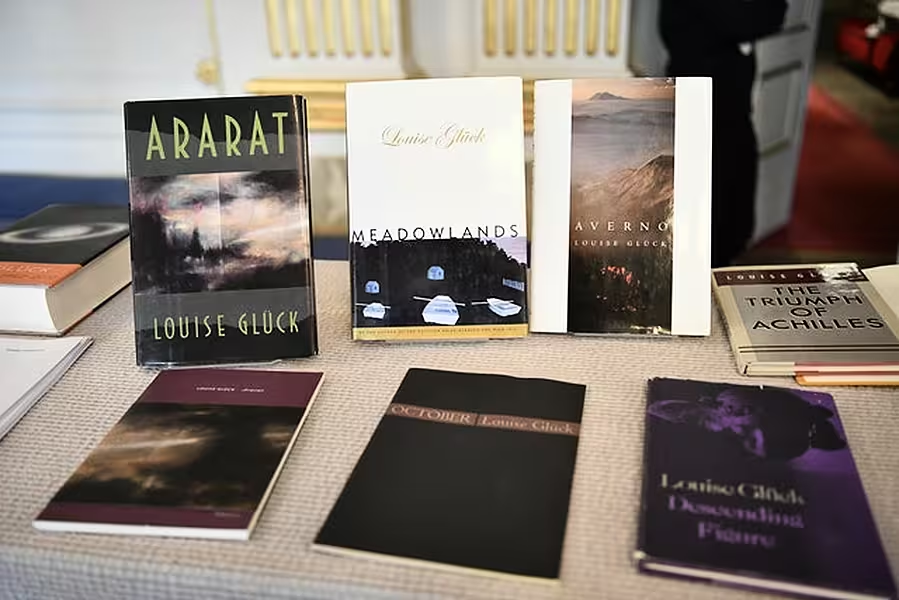She joins a handful of American poets who have received the prize, which has been dominated by novelists throughout its 112-year history.
The last American to win was Bob Dylan in 2016.
She is also one of the few women — the 16th female Nobel Literature laureate.
In one of Literature Laureate Louise Glück’s most lauded collections, ‘The Wild Iris’ (1992), she describes the miraculous return of life after winter in the poem ‘Snowdrops’.
Read the poem at: https://t.co/P3I8RhCeKh#NobelPrize— The Nobel Prize (@NobelPrize) October 8, 2020
Gluck told Sweden’s TT news agency from her home in Cambridge, Massachusetts, that her phone was ringing off the hook, and she was struggling to express her feelings about the award.
The Nobel Committee praised Gluck “for her unmistakable poetic voice that with austere beauty makes individual existence universal” in its citation.
Announcing the award in Stockholm, Mats Malm, the Swedish Academy permanent secretary, said he had spoken to Gluck, and the news “came as a surprise — but a welcome one as far as I could tell”.
New York-born Gluck, 77, who is a faculty member at Yale University, made her debut in 1968 with Firstborn, and “was soon acclaimed as one of the most prominent poets in American contemporary literature”, the committee said.
Anders Olsson, chairman of the Nobel literature committee, said Gluck’s 12 collections of poetry were “characterised by striving for clarity”.
They include Descending Figure, The Triumph Of Achilles and Ararat.

Mr Olsson said her verses, which often draw on classical influences and examine family life, were marked by an “austere but also playful intelligence and a refined sense of composition”.
“Louise Gluck’s voice is unmistakable. It is candid and uncompromising, and it signals that this poet wants to be understood.
But it is also voice full of humour and biting wit,” Mr Olsson said.
“This is a great resource when Gluck treats one of our great topics, radical change, where the leap forward is made from a deep sense of loss.”
‘Averno’ (2006) is a masterly collection, a visionary interpretation of the myth of Persephone’s descent into hell in the captivity of Hades, the god of death. Another spectacular achievement is Louise Glück’s latest collection, ‘Faithful and Virtuous Night’ (2014).#NobelPrize
— The Nobel Prize (@NobelPrize) October 8, 2020
The committee noted her 2006 collection Averno, calling it “masterly” and “a visionary interpretation of the myth of Persephone’s descent into hell in the captivity of Hades, the god of death”.
Gluck is the recipient of many awards, including Guggenheim and National Endowment for the Arts fellowships, the American Academy of Arts and Letters Gold Medal in Poetry and the National Humanities Medal.
She won the Pulitzer Prize in 1993 for The Wild Iris and the National Book Award for Faithful and Virtuous Night in 2014.
She was US poet laureate from 2003 to 2004.
The Nobel comes with a gold medal and 10 million kronor (£872,000).
Still to come are prizes for outstanding work in the fields of peace and economics.







